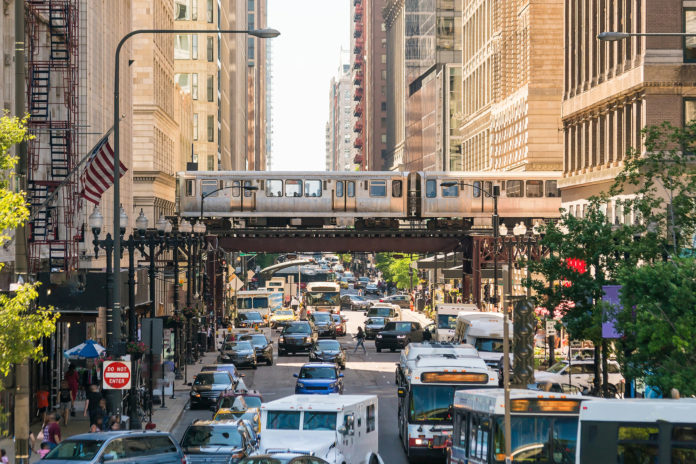
The process of moving out can be quite exciting but one that comes with mixed feelings. On one hand, you’re excited about changing your usual setting and environment. But on the other, you are not sure how the new place will be like.
Will your neighbors be friendly and accommodating? Is the place safe? These and many others are some of the questions you will be asking yourself.
Either way, if your new destination is a big city like Los Angeles, the following are the pros and cons you need to have in mind before taking the big leap.
Pros of living in a city

Less boredom
One of the biggest advantages of city life is that there’s more than you can exhaust, whether you’re an indoor person or outgoing. With thousands or even millions of people all having varying needs and interests, the urban never runs out of things to do. In it are major sporting events, festivals, tourist destinations, clubs, movie theaters, etc. In short, all your hobbies and interests have a place of satisfaction as long as you can hunt what suits your lifestyle.
Increased convenience
All the amenities you need, whether that’s hospitals, schools, housing, transport means, or government services, are all easily accessible in a city. And the best part? They’re available in varieties, meaning you always have a ton of options on your plate. For example, when looking for a place to stay, you’ll have a myriad of options to choose from, including renting a studio, loft, condo or even a serviced apartment located in a building with tons of cool amenities. Learn more about that on theblueground.com.

More career opportunities
Living in the city exposes you to a wide range of talents, education opportunities, and enlightening programs. Most importantly, you can quickly expand your network here, which is crucial when seeking to expand the scope of your career. In a nutshell, cities offer a more conducive environment for learning, growing, and moving up the career ladder when compared to inurbane areas.
Highly organized public transportation
The cost of buying and maintaining a car can add up quite quickly and hinder your growth, especially in the early stages of your career. For starters, you need to take care of car payments, registration fees, and insurance. If you cannot justify investing such money in a car, then you’re better off using public transportation.
Fortunately, most top cities have a wide range of affordable options when it comes to public transportation. This includes trains, subways, and buses to help you move to and from your home and other metro areas. What’s more, if your city is bike-friendly, you can also consider going this eco-friendly route.

Top-quality shopping
Shopping in the city presents you with numerous options. You won’t have problems finding whatever you need, whether that’s the latest fashion or vintage household items to furnish your home. For others like groceries, you can choose to shop at your neighborhood marketplace or one of the big box stores in the city.
New experiences
Cities are popular for their cultural diversities since they host people from all walks of life. This offers a fantastic opportunity to learn and try new things, especially when you’re trying to expand your knowledge and experiences. What’s more, the fast-paced life strengthens your coping mechanisms and flexibility in handling new challenges. The eventual gain is that you’re able to break past your limits and create exciting memories while at it.

Advanced medical care
Another major perk of living in the city is that it offers you the opportunity to access the highest level of medical care without needing to travel for hours. You will find dozens of top healthcare providers within a relatively small radius. Besides, the high competition in cities drives facilities to employ only the cream of the crop in the medical field to ensure the best care for you.
Cons of living in the city

Like anything else, the city is not always a place of pure bliss. Below are some of the disadvantages that come with living here.
More nuisance
Nuisance is one of the biggest drawbacks you’ll have to learn to cope with when living in a city. If you’re not dealing with insecurity, it’s pollution, noise, congestion, or even political chaos. And what’s worse, all of these are always happening as the city never sleeps. So, if you’re trying to find some calm and quiet, a metropolitan is the least of places to find it.
High cost of living
In the city, you cannot afford to be broke as almost everything here requires money to purchase or experience. Things like food, housing, or entertainment which you’ll probably find at a lower cost in small towns, tend to sell at a premium in the city. Unless you have a steady flow of income, living in the city can be quite an uphill task.

Less personal space
For anyone who values personal space, the city is never the best of places to reside in. For example, due to limitations in space, the majority of people live close to each other which means reduced privacy. The busy and often congested streets are something else you have to live with. It’s even worse if you suffer from a disorder like claustrophobia as this kind of overcrowding does little to reduce your discomfort.
Unforeseen inconveniences
In small towns and remote places, you’re less likely to compete for amenities like parking, roads, or business premises. The same cannot be said of cities where you must plan accordingly to be guaranteed access and convenience. A short distance that you’d normally cover in minutes in the suburbs could end up taking hours on congested city roads. As a city dweller, therefore, sound planning is critical if you’re to succeed and enjoy all the conveniences that come with city life.

As you move out to the city, what are some of the things you’re excited about and what do you think will be your biggest challenge? We’d love to hear your feedback.











